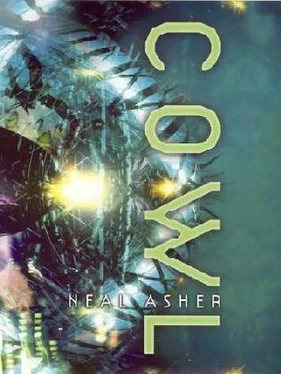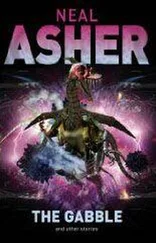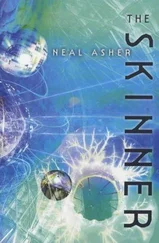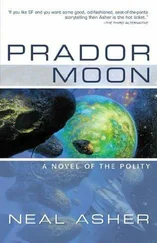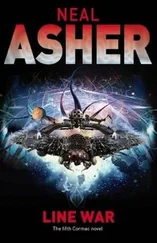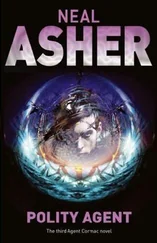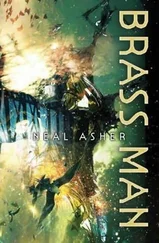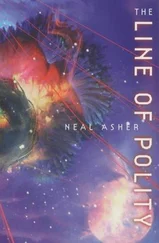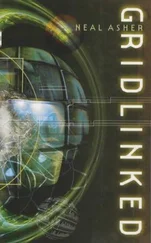Neal Asher - Cowl
Здесь есть возможность читать онлайн «Neal Asher - Cowl» весь текст электронной книги совершенно бесплатно (целиком полную версию без сокращений). В некоторых случаях можно слушать аудио, скачать через торрент в формате fb2 и присутствует краткое содержание. Год выпуска: 2004, Жанр: Фантастика и фэнтези, на английском языке. Описание произведения, (предисловие) а так же отзывы посетителей доступны на портале библиотеки ЛибКат.
- Название:Cowl
- Автор:
- Жанр:
- Год:2004
- ISBN:нет данных
- Рейтинг книги:4 / 5. Голосов: 1
-
Избранное:Добавить в избранное
- Отзывы:
-
Ваша оценка:
- 80
- 1
- 2
- 3
- 4
- 5
Cowl: краткое содержание, описание и аннотация
Предлагаем к чтению аннотацию, описание, краткое содержание или предисловие (зависит от того, что написал сам автор книги «Cowl»). Если вы не нашли необходимую информацию о книге — напишите в комментариях, мы постараемся отыскать её.
In the far future, the Heliothane Dominion is triumphant in the solar system, after a bitter war with their Umbrathane progenitors. But some of the enemy have escaped into the past, intent on wreaking havoc across time. The worst of these is Cowl, an artifically forced advance in human evolution.
Cowl — читать онлайн бесплатно полную книгу (весь текст) целиком
Ниже представлен текст книги, разбитый по страницам. Система сохранения места последней прочитанной страницы, позволяет с удобством читать онлайн бесплатно книгу «Cowl», без необходимости каждый раз заново искать на чём Вы остановились. Поставьте закладку, и сможете в любой момент перейти на страницу, на которой закончили чтение.
Интервал:
Закладка:
Deep in the forest the Cro-Magnon men heard a scream of defiance and rage from the Neanderthal encampment they were encircling. But they never found the one who had murdered so many of their tribe. Not even bones.
10
Modification Status Report:
Some sensory additions will form in an aerogel grid on the exoskeleton, similar in function to the lateral line of a fish, but sensitive to a wide spectrum of radiation. The presence of this grid negates the need for eyes. This is fortunate, as the interfacing organs, which by necessity must remain close to the child’s brain, occupy much of its face and leave little room for much else. I have retained the mouth in position, along with those modifications required for the more efficient ingestion of food, but the nose and the eyes are gone. Also, it being the case that many of the interfacing organs are delicate, some sort of protection is obligatory. Serendipitously, I have discovered that only a small alteration to the gene controlling exoskeletal growth (this taken, along with the mouth modifications, from the genome of a scarabaeid beetle) causes growth of ‘wing cases’ over the face. Already, I think, I know what my child’s name will be.
He lay flat on the floor of his hut, his eyes rolled up into his head and his body rigid with ecstasy. The hut stank. The man stank. Polly grimaced down at him, then moved over to the duck skewered over the fire and tore off a leg. The two patches she had pressed against his chest, while running her hands up inside the stinking fur he wore, were taking him somewhere he had never been before. Wondering why she had chosen to do that rather than zap him with the taser, she supposed, after seeing the squalor he lived in, she had felt some pity for him.
As she sat eating, and washing down each mouthful with bitter sips from a wineskin, she could hear his woman still angrily moving about outside. He had yelled at her earlier when the woman had protested, whereupon the woman had glared at Polly with both hatred and fear. Polly realized she had to leave now before he came to and wondered what the hell had happened to him. Tossing the duck bone in the fire she reached out for the rest of it, tearing away its stringy flesh with her teeth. The remainder of two flat gritty loaves she shoved into her pockets, then looked around. But there was nothing else here she wanted—no more food anyway. With one last look at the prehistoric man she had sent into a drugged coma, Polly stepped out of the hut. The woman looked up from a quern on which she was grinding some sort of grain. She babbled something Polly did not understand. Polly reckoned her to be not much older than herself, but she appeared terribly worn, like Marjae near the end. Behind her two naked brats were squabbling in the mud. Polly strode past them all to reach the coracle moored on the island shore. The woman shouted a protest as Polly stepped into the small boat and pushed herself away with the paddle. She did not look back.
The sunset was red on the sky when Polly finally moored at another island and crawled ashore. She prepared herself a bed of thick reeds and slumped down on it gratefully. Even as cold as she felt, she was instantly asleep. Night passed in a seeming instant, and as she woke to the dawn chorus of waterfowl and frogs, and then the sound of a man bellowing and threatening. She sat up and he saw her at once and cursed as he waded towards her as fast as he could. There seemed no doubt about what he intended to do with his serrated spear. Polly turned aside, the webwork inside her responsive to the slightest nudge. But there was the suffocation to face.
Try hyperventilating.
‘What?’
Breathe quickly and deeply — more than you need to—until you’re dizzy.
Polly started doing just that. Soon she felt a buzzing through her limbs and became light-headed. As she stepped beyond the bellowing man’s furthest remembered ancestors, the swamp grew thin and it dissipated like fog, exposing a reality of infinite grey over a black sea. Terrible cold gripped her and it seemed as if the pressure of that was aiming to squeeze out her last breath. She was falling now, hurtling through that grey void—the sensation of speed more manifest than before. Briefly she glimpsed a silvery line on some impossible horizon. Surely it must end soon. But as the air bled out of her lungs she began to panic—the scale was going to carry her to the limit again, she was going to run out of breath. Her desperation to stop seemed to distort everything around her into glassy planes, vast curved surfaces, and lines of light. What she needed was down there, and she pulled herself into it. Gasping but elated, she stumbled across frost-hardened ground into the blast of a snowstorm.
Then something growled behind her.
‘Abutment three’ bore the shape of a huge crooked thumb projecting over one corner of the triangular entrance that filled the bottom of this vast chamber. Tack had no wish to look down into the tunnel again, since some effect of perspective seemed to try and pull his eyes out of his head. In the distance he could see a similar abutment overhanging each of the other two corners, and it was a distance—looming through the mist filling the chamber, they stood at least a kilometre apart. Standing back from the edge of the platform mounted on the side of this abutment, and over the rim of which Engineer and various members of his staff were now peering, Tack turned to Saphothere.
‘He told me about the shift back in time, but what was all that about spatial elasticity and the unnecessary squandering of energy?’ he asked.
Saphothere glanced at him. ‘At present the tunnel is one light year long, internally, and a decision must be made as to whether we maintain that physical length or extend it.’
‘But if they are going back a hundred million years, surely the tunnel needs to be extended?’
‘Distance,’ said Saphothere tersely, ‘when equated to time travel through interspace, is only a function of the energy you need to expend. The shorter the tunnel’s actual length, the greater the energy input required to maintain it. Had you sufficient energy you could open a doorway directly into the Precambrian, though you would probably put out the sun in doing it. Zero energy input would extend such a tunnel to infinity, attenuating it into non-existence. It’s quite simple really.’
Tack snorted and returned his attention to Engineer. He and the others had now finished their discussion and rejoined them.
‘It is now decided,’ said Engineer. ‘Take your mantisal through and inform Maxell that we shall maintain the tunnel at one light year. I feel that to extend now would be premature, and that we should wait for the shift into the Triassic’
‘Yes, Engineer,’ replied Saphothere, with a short bow. He turned, and almost immediately their mantisal appeared out of the hot humid air blowing across the platform.
‘And you, Tack,’ continued Engineer, ‘I look forward to seeing again when you return, though you will be much changed.’
Tack did not know what to make of that, so he just nodded and followed Saphothere into the mantisal. Soon they were drifting out from the platform, out over the triangular well below and all its gut-churning distortion. Then the mantisal dropped like a brick, straight down into it.
The falling sensation continued until the mantisal turned, so that rather than dropping downwards as if into a real well, they were now travelling along an immense triangular tunnel. It was only a change of perspective, as the weightless falling sensation continued, but enough for Tack to get a grip on, and so not lose the contents of his stomach. Also, as they progressed, he began to feel acceleration, noticing what appeared to be faults in the silver-grey walls of the tunnel fleeing past faster. All of this was numbing, and just watching it dropped Tack into a weary fugue. He dozed, losing it until Saphothere spoke to him again. Checking his watch, Tack saw that only minutes had passed.
Читать дальшеИнтервал:
Закладка:
Похожие книги на «Cowl»
Представляем Вашему вниманию похожие книги на «Cowl» списком для выбора. Мы отобрали схожую по названию и смыслу литературу в надежде предоставить читателям больше вариантов отыскать новые, интересные, ещё непрочитанные произведения.
Обсуждение, отзывы о книге «Cowl» и просто собственные мнения читателей. Оставьте ваши комментарии, напишите, что Вы думаете о произведении, его смысле или главных героях. Укажите что конкретно понравилось, а что нет, и почему Вы так считаете.
